High-profile green initiatives from the retailers have dominated recent headlines. Take Marks & Spencer's pledge to be carbon- neutral within five years, Tesco's 10-point community plan and the Anya Hindmarch reusable shopping bag being sold by Sainsbury's for £5.
Yet, while the retailers have been hogging the limelight, suppliers have been relatively quiet. So, why are the manufacturers not grabbing their share of the headlines?
It's not that they are ignoring the green agenda. Just last week soya yoghurt and milk company Alpro took pole position in the race to be green by being the first supplier to announce plans to become carbon-neutral.
The move, which follows the carbon-labelling initiative launched by Walkers Crisps and Innocent Drinks in collaboration with the Carbon Trust last month, signals that more suppliers are recognising the need to green up.
Sue Welland, the founder of carbon offset company Carbon Neutral, says she is now working with a number of suppliers, but it has taken a long time for them to catch on. "It has only been in the past six months that the food side has really woken up to this issue at all," she says. "Now we are seeing a lot of pressure from the brand owners to do something."
Suppliers large and small have now embarked on a raft of green initiatives, from reducing food miles to cutting down waste and emissions. Smaller companies appear to be especially innovative.
Cheesemaker Carrigbyrne, for instance, is producing electricity from leftover materials.
Meanwhile, Adnams has introduced a new lightweight beer bottle to reduce the company's glass usage significantly.
However, few are shouting about what they're doing, and sometimes for good reason. Stephen Wincott, environmental health and safety manager at Reckitt Benckiser, describes a range of initiatives from offsetting projects to installing wind turbines, but says they are not seen internally as a marketing tool. "We prefer just to get on and do it," he says. "It is not useful to be seen as a figurehead for green issues - it means you open yourself up to be targeted by environmentalists."
There's nothing new to say, claims Unilever, which has been pursuing a green strategy for more than a decade. It's not always appropriate to bang the green drum, adds Unilever's external affairs manager Thomas Lingard.
"We are doing an enormous amount, but we don't have the same opportunities to tell our consumers as the retailers," he says. "You have to weigh up how much you need to say. If you are going to put information on the pack it has to be relevant. Most people are much more interested in what a product tastes like rather than the reduction in carbon emissions."
Suppliers are nervous about promoting their green credentials before an industry standard is agreed, adds Kellogg's communications director Chris Werman.
"We know the carbon footprint of all of our products, but we don't want to print it until we have a universal measure," he says. "It is a huge challenge to measure from fork in the ground to dishwasher and we want to make sure everyone is saying the same thing. We don't want another issue like nutrition labelling where there are two systems (GDAs and traffic lights) - it is better for everyone if there is one system common to all."
IGD is working with a number of suppliers on this issue via the Policy Issues Council, the membership of which is made up of the chairman and chief executives of the leading manufacturers and retailers. It is, however, "very early days", says chief executive Joanne Denney-Finch.
"The PIC is very keen to ensure one carbon measurement methodology behind which the industry can align," she says.
Such a system is expected to be in place later this year and the pressure is growing for more such initiatives. According to a recent Ipsos Mori poll, a quarter of adults believe manufacturers should be more ethical. Investors are keeping a watchful eye, too. There has been increasing interest in ethical investment since the likes of Norwich Union and Friends Provident began voting their shares along ethical guidelines. Norwich Union, which has £150bn worth of funds under its control, has even produced a matrix so customers and investors can see how companies are meeting the challenge of sustainability.
Companies that do not shout about their green credentials are missing out, suggests Luke Vincent, a brand consultant at Dragon. "Ethical is the new premium. Consumers interpret strong sustainable and ethical values as the signs of a modern, aware, quality brand. They want to believe that brands really do care."
It's clear from the raft of green initiatives that have been launched over the past few months that suppliers do care. Maybe it's time they started showing it.n
For more on greening the supply chain, read our Supply IT supplement, free with this issue.









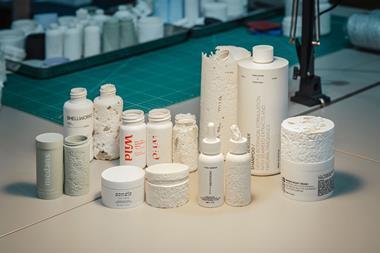
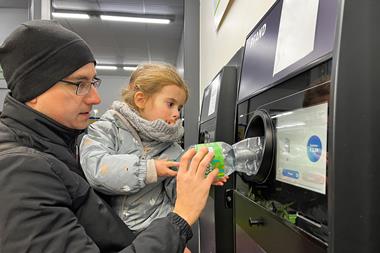
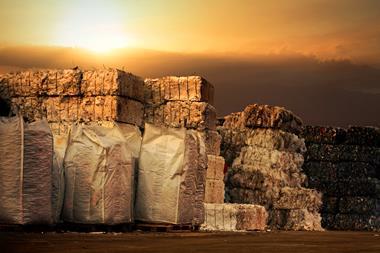



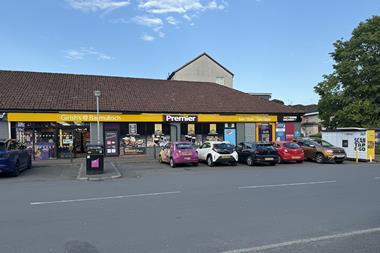
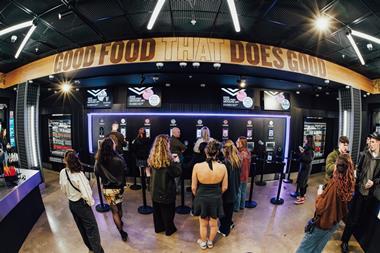

No comments yet